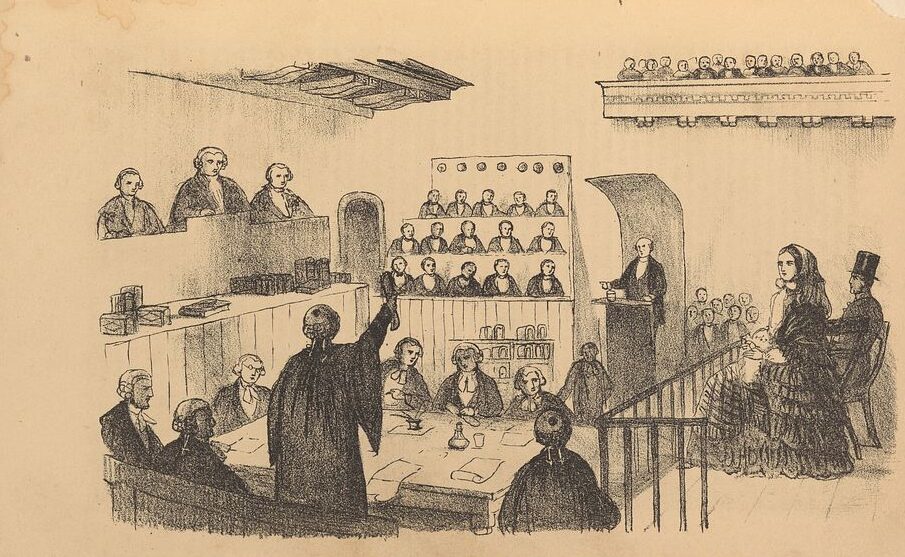Now Reading: The Skills Required to Succeed at the Bar with Barrister Emily Windsor
-
01
The Skills Required to Succeed at the Bar with Barrister Emily Windsor

The Skills Required to Succeed at the Bar with Barrister Emily Windsor
Remember those old TV dramas where barristers dramatically pound the table, make grand speeches, and somehow win impossible cases through sheer force of personality? The reality of building a successful practice at the Bar is somewhat different these days, and barristers must develop thoroughly modern approaches to client relationships.
The blend of skills required of a modern advocate
In many ways, the bedrock of a specialist legal practice is technical expertise.
Take Emily Windsor, barrister, with experience as a judge, whose career spans nearly three decades in property law with particular expertise in agricultural holdings.
A key feature of her practice is that she puts in the work to ensure that she is a specialist in her field. She has built up a body of reported property law cases, at all levels, evidencing her expertise.
In recognition of this, Windsor was invited to join the editorship team of “Muir Watt & Moss: Agricultural Holdings,” a legal text whose first edition appeared in 1912. “Essentially, it’s a title which has now been in existence for over 100 years, so we’re very much the custodians of it,” she explains. Her responsibility includes updating two chapters focused on succession upon death and retirement—critical aspects of agricultural tenancy law.
Maintaining such authoritative work demands discipline. “Writing a book makes you research everything in great detail,” she shares. “You have to make sure you’re up to date with all the changes. You have to research every single recent case and statutory instrument.”
However, legal knowledge is only part of the picture. Windsor also points to the need for good legal judgment: the ability to identify how to best present an argument in a manner which will appeal to a judge, and the skills required to predict the likely reaction of a judge to a set of facts and arguments. Windsor suggests that particularly strong advocates have this “X factor”.
Integrity and honesty are key. And personal relationships also matter. Modern lawyers need to be able to connect with their peers and their clients. Ultimately a client needs to have confidence that their legal team understands the circumstances that have brought them to seek legal advice, and their objectives.
A further factor is responsiveness. Legal practice has transformed dramatically during Emily Windsor’s career. “When I first joined the Bar, people wrote to each other with letters,” she recalls. “Barristers who typed opinions on computers for themselves rather than with a secretary were thought to be quite modern.” Now, thanks to technological developments, legal practice moves at a faster pace.
Windsor views these developments as entirely positive. She now regularly conducts remote hearings and consultations. “It is interesting that one side effect of the increased use of technology is that I “see” my clients more frequently than I used to, and I think that has proved to be very positive for building relationships”.
Continuity creates confidence
Unlike solicitors who frequently change firms throughout their careers, barristers typically demonstrate remarkable professional stability. Emily Windsor describes the “common career trajectory” where barristers “join a set of chambers at 25 and leave at 70.”
Windsor herself exemplifies this pattern. When asked if she had been at Falcon since she qualified, Windsor confirms: “Yes, and same goes for most of my colleagues.” Such stability means that both professional clients and lay clients work with the same barrister over decades—sometimes across the generations. “Clients sometimes contact me saying that I last helped them 10 or 15 years ago. They ask me if I remember them, to which the response is that of course I do: barristers spend more time reflecting on their cases and thinking about their clients than people might realise”.
Professional longevity brings another dimension of trust through institutional memory. Windsor expresses genuine enthusiasm for her career, stating: “I was discussing with my pensions advisor the other day when I might retire, and I’m not even sure really why I would want to, because I wake up in the morning and I look forward to doing it. I enjoy the variety of clients I meet. I like the buzz, the energy, of being in court.”
So while courtroom theatrics might make great television, the reality proves far more nuanced. Authentic client trust emerges from expertise, professional judgment, high professional standards, accessibility, and consistency.










